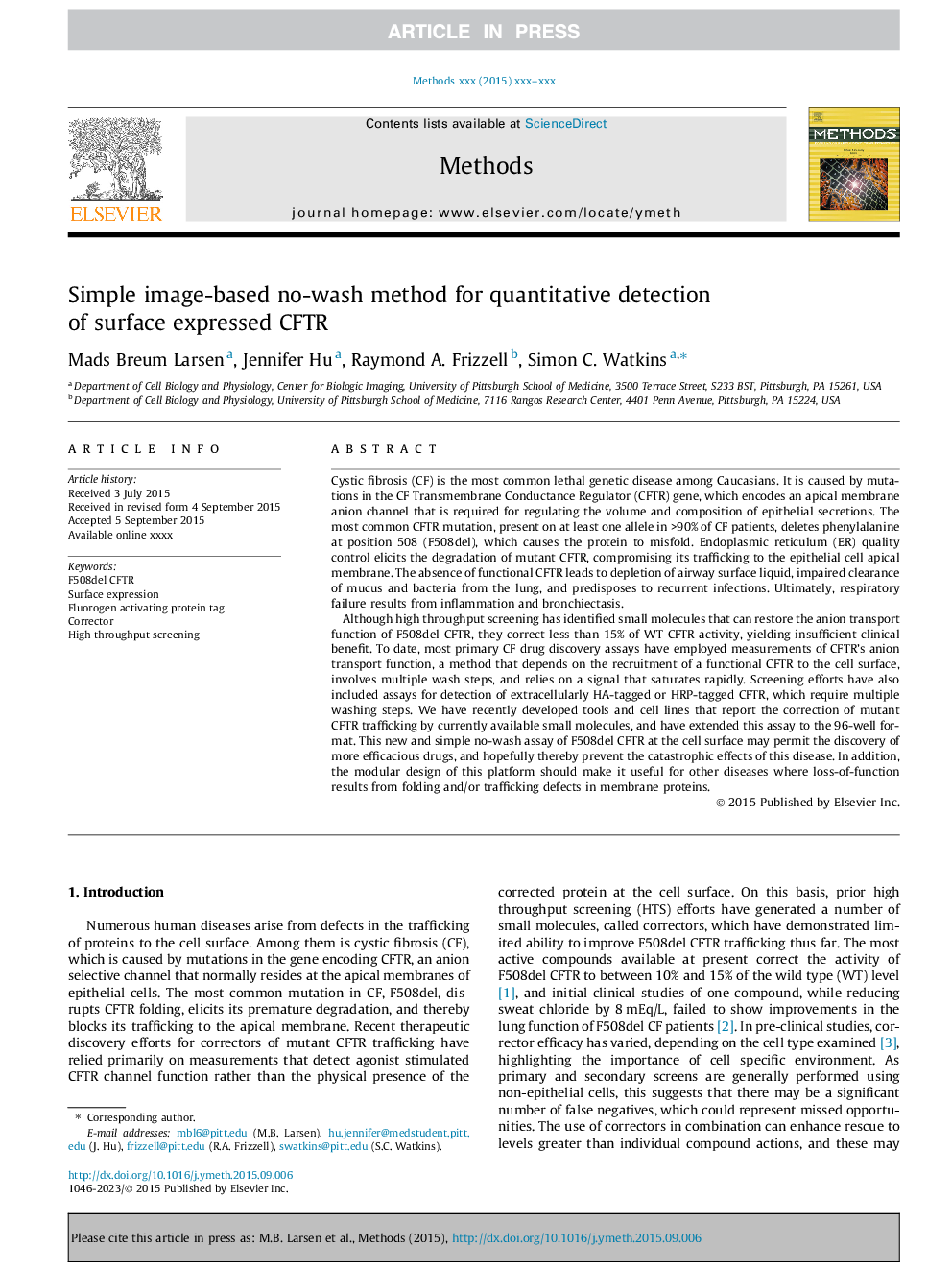| Article ID | Journal | Published Year | Pages | File Type |
|---|---|---|---|---|
| 8340376 | Methods | 2016 | 6 Pages |
Abstract
Although high throughput screening has identified small molecules that can restore the anion transport function of F508del CFTR, they correct less than 15% of WT CFTR activity, yielding insufficient clinical benefit. To date, most primary CF drug discovery assays have employed measurements of CFTR's anion transport function, a method that depends on the recruitment of a functional CFTR to the cell surface, involves multiple wash steps, and relies on a signal that saturates rapidly. Screening efforts have also included assays for detection of extracellularly HA-tagged or HRP-tagged CFTR, which require multiple washing steps. We have recently developed tools and cell lines that report the correction of mutant CFTR trafficking by currently available small molecules, and have extended this assay to the 96-well format. This new and simple no-wash assay of F508del CFTR at the cell surface may permit the discovery of more efficacious drugs, and hopefully thereby prevent the catastrophic effects of this disease. In addition, the modular design of this platform should make it useful for other diseases where loss-of-function results from folding and/or trafficking defects in membrane proteins.
Related Topics
Life Sciences
Biochemistry, Genetics and Molecular Biology
Biochemistry
Authors
Mads Breum Larsen, Jennifer Hu, Raymond A. Frizzell, Simon C. Watkins,
